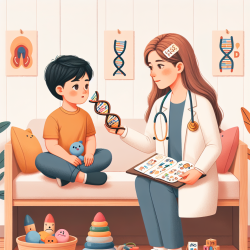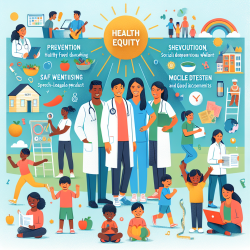The recent study titled "Perspectives of adults with Klinefelter syndrome, unaffected adolescent males, and parents of affected children toward diagnosis disclosure: a Thai experience" provides valuable insights for practitioners on the sensitive process of disclosing a Klinefelter Syndrome (KS) diagnosis. This blog aims to translate these findings into actionable steps for practitioners, ensuring better outcomes for children diagnosed with KS.
Understanding the Study
The study, conducted in Thailand, involved three participant groups: adults with KS, unaffected adolescent males, and parents of children with KS. The goal was to explore their perspectives on KS diagnosis disclosure and develop preliminary guidelines for healthcare professionals (HCPs) and parents.
Key Findings
From the research, several critical points emerged:
- Early Disclosure: Early and gradual disclosure is recommended to promote self-confidence and positive coping. This aligns with findings from Western populations, indicating that early disclosure correlates with better adaptation.
- Parental Involvement: Both parents should be involved in the disclosure process, preferably before puberty or the beginning of hormonal treatment.
- Language Matters: Avoid using terms like "extra female chromosome" as it can cause confusion and anxiety. Instead, use "extra chromosome" or "47,XXY" to minimize negative connotations.
- Support Systems: Positive and close parent-child relationships are crucial. Continuous support and open communication help children cope with the diagnosis.
Implementing These Findings
For practitioners, incorporating these findings into practice can significantly improve the disclosure process:
- Prepare Parents: Equip parents with the right information and emotional support to disclose the diagnosis calmly and confidently. Provide resources like brochures or online materials in the local language.
- Use Age-Appropriate Language: Tailor the explanation to the child's maturity level. Gradually introduce more complex information as the child grows older.
- Offer Continuous Support: Follow-up conversations and ongoing counseling are essential. Encourage parents to monitor their child's emotional well-being and be available to answer questions.
- Create a Safe Environment: Ensure that the child feels supported and understood. Reinforce the idea that KS is a manageable condition and emphasize the child's strengths and normalcy.
Encouraging Further Research
While this study provides a foundational guideline, further research is needed to refine these recommendations and adapt them to different cultural contexts. Practitioners are encouraged to contribute to this growing body of knowledge by sharing their experiences and conducting additional studies.
To read the original research paper, please follow this link: Perspectives of adults with Klinefelter syndrome, unaffected adolescent males, and parents of affected children toward diagnosis disclosure: a Thai experience.










